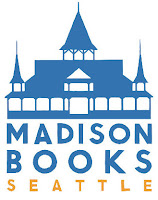 rewardingly complex and deviously ambiguous, mirroring the darker side of real life. (Connolly followed that up with last year’s The Book of Lost Things, a non-series project.) So it was with great anticipation that I cracked the spine of his sixth Parker novel, The Unquiet (already available in the UK, but due on American bookshelves next week). To say I wasn’t disappointed with results, is a gross understatement.
rewardingly complex and deviously ambiguous, mirroring the darker side of real life. (Connolly followed that up with last year’s The Book of Lost Things, a non-series project.) So it was with great anticipation that I cracked the spine of his sixth Parker novel, The Unquiet (already available in the UK, but due on American bookshelves next week). To say I wasn’t disappointed with results, is a gross understatement.This is a thoroughly unsettling work (what else, though, would one expect from Connolly?). It is a dark and dangerous literary journey that starts with a feeling of dread, and just builds and builds, until the tension becomes unbearable. If you’ve not been introduced to Connolly’s Maine-based private eye before, then this novel is a great place to start in the series. The Unquiet finds Parker looking back into both his past and that of others, to find redemption and atonement for past sins--some of which may never be completely forgiven.
We find Charlie Parker in these pages no less melancholic than he’s been before, hearing the voices of his deceased first wife and daughter (who were brutally murdered in 1999’s Every Dead Thing), and trying to find peace with his new, estranged wife, Rachel, and their daughter. To break the morose mood, he takes on what looks like a simple job, protecting a woman named Rebecca Clay and her daughter from a mysterious stalker. In Parker’s world, however, nothing is ever simple. His adventures inevitably contain supernatural aspects, because for P.I. Parker, the world of the living always intersects with the world of the dead, and past sins are propelled into the future.
It seems that the stalker harassing Rebecca Clay and her child is an underworld hit man by the name of Frank Merrick, who’s working for a lawyer called Eldritch (an apparent homage to American horror writer H.P. Lovecraft). Together, the men are attempting to trace Rebecca’s father, the child psychologist Dr. Daniel Clay, a man whose career was ruined by whispers of pedophilia, and who subsequently vanished in disgrace. This assignment proves troublesome, so Parker calls upon Louis and Angel, his rough-and-tough sidekicks, as well as Jackie Garner and his bodyguards, Tony and Paulie Fulci, to protect Ms. Clay from Merrick, while Parker probes further into the hit man’s motives. Our hero soon discovers much more amiss than he had expected. It appears Merrick’s young daughter went missing at the same time as Daniel Clay vanished (and while Merrick was still in prison). There’s also evidence that the children Clay was involved with drew pictures of their abusers, all wearing sinister bird-masks. We’re also told that along the Maine-Canada border rests an abandoned community known as Gilead--a place Dr. Clay was known to visit, but that was abandoned after it was discovered that ritual child abuse had taken place there.
Parker soon finds connections to members of Boston’s Russian mafia, who traffic in children, Internet child abuse, and murder. As this story develops, Parker and Merrick both hear voices from the dead, voices that are hollow, voices belonging to people who no longer walk the earth. And into that potent and chilling mix comes the cigarette-smoking and chilling avenger known as “The Collector,” who inquires of Parker: “You think you are a good man?” and continues, “How can one tell the good from the bad when their methods are just the same?”
The Unquiet is among the finest reads of this or any other year. I was simultaneously enthralled and terrified. But it’s the wit Connolly harnesses to his fiction that prevents his dark tales from overwhelming readers with malevolence.
I finished the novel one afternoon last week in London, sitting on a sunlit park bench near Leicester Square, preparing to attend a publisher’s party in Connolly’s honor that evening. With the yarn still haunting the corners of my mind, I hopped the Tube to Farringdon, near the restaurant where the party was to take place. There I found a bar and waited for my friend and colleague, Shots editor Mike Stotter. He and I chatted a while about the hustle and bustle of our respective professional lives, and our trip to ThrillerFest in New York this coming July. And finally we set off for The Bleeding Heart, an eatery in Hatton Garden, London’s diamond district.
This restaurant had been chosen by Connolly’s publisher, Hodder & Stoughton, because it boasts a spacious private room. There, helpful staff members took away our jackets, replacing them with brimming glasses of chilled champagne. Among those joining Mike and I were David Headley and Daniel Gedeon from Goldsboro Books, Guardian books critic Maxim Jakubowski, Crime Time editor Barry Forshaw, and author Mark Billingham with his ever-witty wife. During the festivities, I chatted with Sue Fletcher, Connolly’s editor, and we agreed that The Unquiet is his most disturbing work yet, not only due to its subject matter, but also its rather unnerving writing style, which gives the reader a feeling of dread and doom from the onset, and then intensifies to its grim conclusion. I had a quick chat, as well, with Connolly’s agent, the legendary Darley Anderson. And I spotted the hardworking Kerry Hood, head of publicity for Hodder & Stoughton. I thanked her for inviting me to this event, and also reiterated my
 appreciation for her introducing me to Stephen King last year. Somehow I slipped in the story of how I “met” Dean Koontz last month at the London Book Fair. She laughed at what a fan-boy I can be, but said that she appreciated my enthusiasm.
appreciation for her introducing me to Stephen King last year. Somehow I slipped in the story of how I “met” Dean Koontz last month at the London Book Fair. She laughed at what a fan-boy I can be, but said that she appreciated my enthusiasm.Finally, we were asked to take our seats. Hodder & Stoughton’s managing director remarked to the crowd on how much the publisher loves Connolly--not just because of his exceptional talent as a wordsmith, but also because of how willingly he works with Hodder & Stoughton to promote his books. He then asked Connolly to say a few words ... which, if I’m not mistaken, the author hadn’t expected. Fortunately, Connolly is an excellent raconteur, so he spontaneously let loose with one of his characteristically funny talks. It centered around his yeomanlike efforts to find “a town full of evil” along the Maine-Canadian border, on which he could base the abandoned Gilead in his story; but the best he could turn up was a homicide having taken place in the 1920s, so he had to let his imagination work overtime.
The dinner following all of this was fabulous, consisting of a terrine starter followed by the most delicious rosemary lamb, and vegetables. Dessert was a wicked chocolate pudding. We washed it all down with a plenitude of wine. Connolly did the rounds of tables, talking to everyone between courses. I told him how much I enjoyed The Unquiet, as well as his interview last fall with Stephen King, which can be found on his Web site. He mentioned that he’d be visiting the States this summer as part of his book tour--a schedule that will include a stopover in Seattle. (I have to remember to tell my Rap Sheet editor, Jeff Pierce, as he’ll want to see Connolly again. Jeff and his wife came to London last fall, from Seattle, to help celebrate the launch of The Book of Lost Things.)
Finally, after some more mingling and making sure that my copy of The Unquiet was signed by its author, I said my good-byes and set out into the night to catch my train home, my hands around the next book from my to-be-read pile.
READ MORE: “John Connolly: ‘Dying Is an Art I Do Exceptionally Well,” by Barry Forshaw (The Independent); “The Book of Lost Things,” by Alyson Rudd (The Times).

















1 comment:
For God's sake, somebody edit Mr. Karim.
Post a Comment